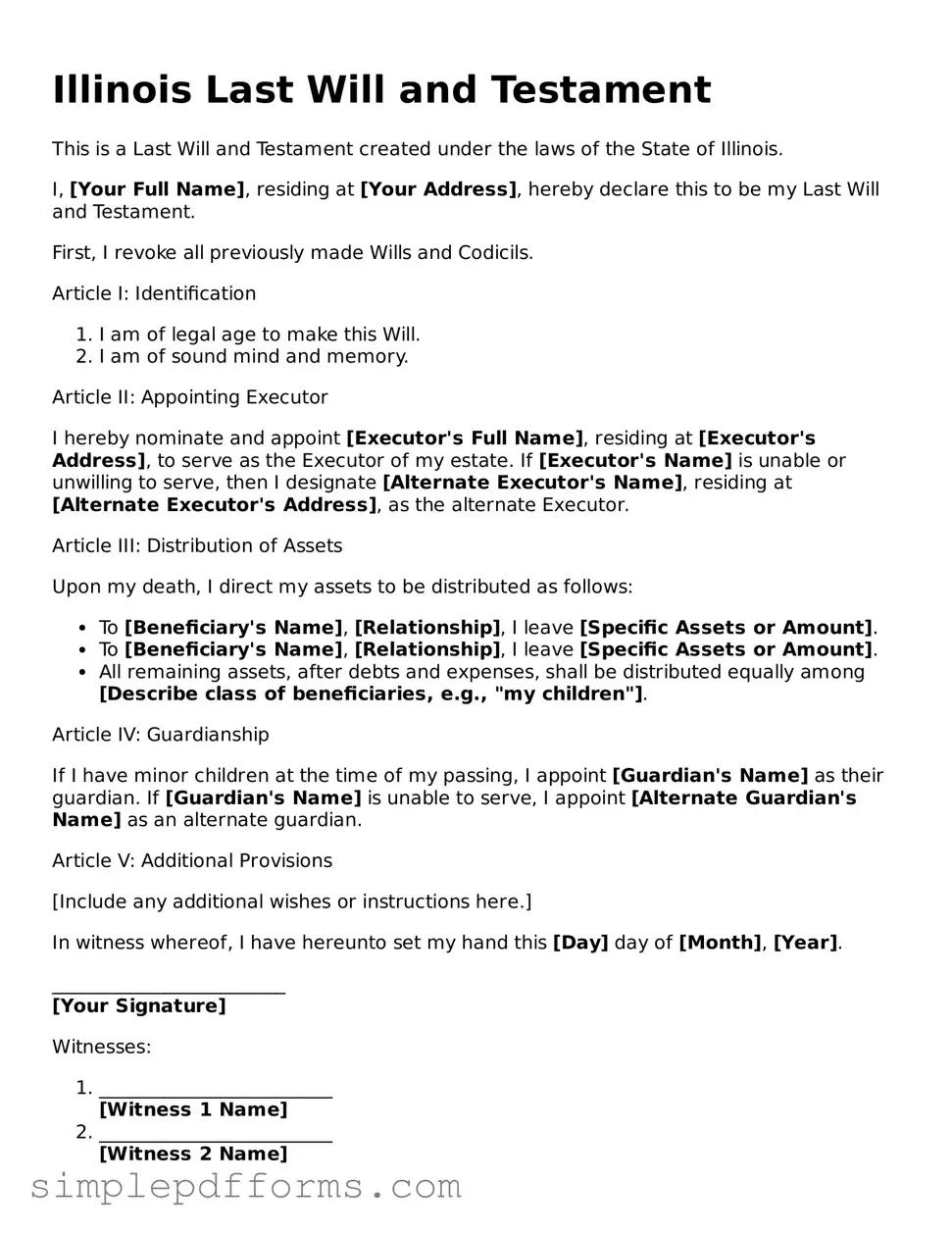Attorney-Verified Last Will and Testament Document for Illinois State
The Illinois Last Will and Testament form is a legal document that outlines an individual's wishes regarding the distribution of their assets after death. This form serves to ensure that personal property is allocated according to the deceased's intentions, thereby minimizing disputes among heirs. Understanding the requirements and provisions of this form is essential for effective estate planning in Illinois.
Open Last Will and Testament Editor Now

Attorney-Verified Last Will and Testament Document for Illinois State
Open Last Will and Testament Editor Now

Open Last Will and Testament Editor Now
or
Get Last Will and Testament PDF Form
Your form is waiting for completion
Complete Last Will and Testament online in minutes with ease.